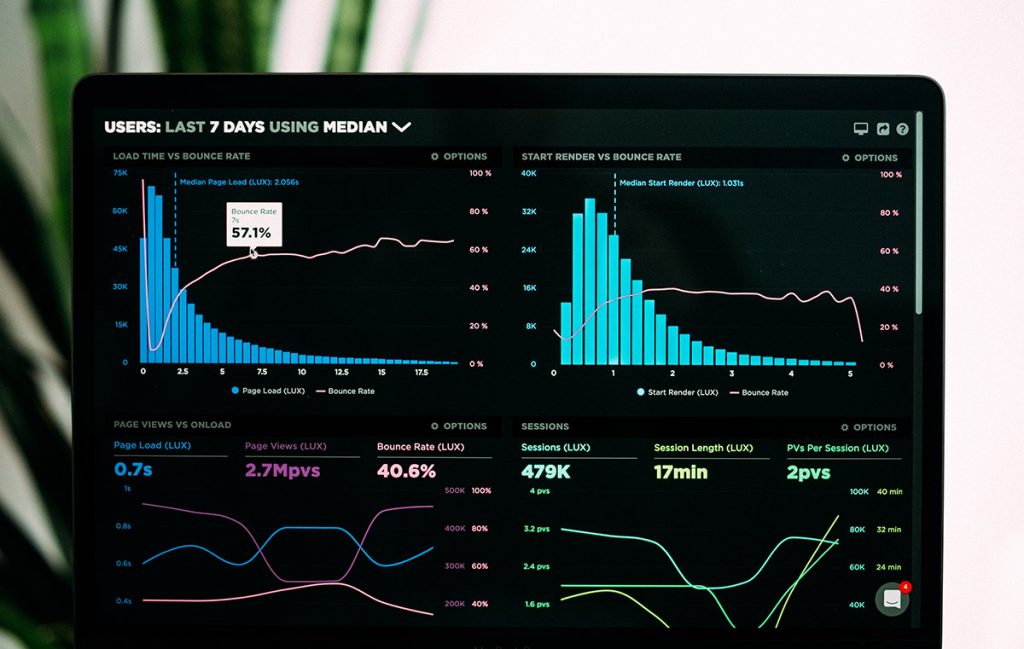Predictive Analytics: Understanding Customer Behavior and Improving Marketing Strategies

Predictive analytics has revolutionized the way businesses understand and connect with their customer base. By leveraging advanced data analysis, companies can now anticipate future behaviors and trends, enabling them to fine-tune their marketing strategies for maximum impact.
In this post, we’ll unveil the power of predictive analytics in comprehending customer behavior and enhancing marketing initiatives. From identifying patterns to forecasting outcomes, the application of predictive analytics has become a cornerstone of effective marketing in today’s data-driven landscape.
By utilizing the insights derived from predictive analytics, businesses can tailor their outreach efforts, optimize customer experiences, and ultimately drive sustainable growth. Join us as we explore the significance of predictive analytics in shaping the future of marketing strategies and gaining a competitive edge in the market.
The Basics of Predictive Analytics
Predictive analytics is a powerful tool that leverages historical and real-time data to forecast future events and trends. In the realm of marketing, predictive analytics involves using customer data to anticipate future behaviors and preferences. This enables businesses to tailor their marketing strategies, ultimately leading to more effective campaigns and higher return on investment.
Defining Predictive Analytics
Predictive analytics, in the context of marketing, is the process of utilizing data, statistical algorithms, and machine learning techniques to identify the likelihood of future outcomes based on historical data. By analyzing patterns and trends within customer behavior and interactions, predictive analytics empowers marketers to make informed decisions and forecast potential customer actions.
Key Components of Predictive Analytics
- Data Mining: This involves extracting patterns and valuable insights from large datasets. By diving into customer data, businesses can uncover hidden patterns and correlations that can be used to predict future behaviors.
- Statistical Algorithms: These algorithms are the backbone of predictive analytics, as they allow marketers to analyze data, create predictive models, and make data-driven decisions. Techniques such as regression analysis and decision trees are commonly employed in predictive analytics for marketing.
- Machine Learning: This component enables systems to automatically learn and improve from experience without being explicitly programmed. In marketing, machine learning algorithms can be used to personalize content, predict customer churn, and optimize marketing campaigns based on different customer segments.
By harnessing these key components, businesses can gain a deeper understanding of their customers, anticipate future trends, and create targeted marketing initiatives that resonate with their audience.
Understanding Customer Behavior through Predictive Analytics
Understanding customer behavior through predictive analytics is a crucial aspect of modern marketing strategies. By leveraging advanced data collection and analysis, businesses can gain valuable insights into customer behavior patterns, leading to more personalized and effective marketing approaches.
Data Collection and Analysis
The process of collecting and analyzing customer data using predictive analytics involves gathering information from various sources such as online interactions, purchase history, demographic details, and social media activity. This data is then meticulously analyzed to identify correlations, trends, and patterns that provide a deeper understanding of customer behavior.
Predictive analytics utilizes sophisticated algorithms to sift through vast amounts of data, uncovering hidden insights that would be difficult to discern through traditional analysis methods. By identifying buying patterns, browsing habits, and response to marketing efforts, businesses can tailor their strategies to align with customer preferences and expectations.
Segmentation and Personalization
One of the key advantages of predictive analytics is its ability to segment customers based on their behavior and preferences. By categorizing customers into distinct groups, businesses can create targeted and personalized marketing strategies that resonate with each segment.
This segmentation allows for the creation of tailored marketing campaigns, product recommendations, and communication strategies that are more likely to capture the attention and interest of specific customer groups. By understanding the unique characteristics and behaviors of different customer segments, businesses can optimize their marketing efforts and enhance customer engagement.
Predictive analytics empowers businesses to anticipate customer needs and preferences, thereby improving the overall customer experience and ultimately driving better business outcomes. By leveraging the power of data-driven insights, businesses can position themselves to respond proactively to customer behavior, fostering stronger relationships and long-term loyalty.
Incorporating predictive analytics into the marketing strategy enables businesses to move beyond generic approaches and embrace a more personalized and targeted way of engaging with customers. This not only enhances the effectiveness of marketing efforts but also fosters a deeper understanding of customer behavior, paving the way for sustained business growth and success.
Improving Marketing Strategies with Predictive Analytics
In today’s competitive market, understanding customer behavior and preferences is vital for creating effective marketing strategies. Predictive analytics plays a significant role in improving marketing strategies by providing actionable insights. Let’s delve into the ways predictive analytics enhances marketing strategies.
Targeted Marketing Campaigns
Predictive analytics enables marketers to create targeted marketing campaigns by identifying the most receptive customer segments. By analyzing historical data and recognizing patterns, businesses can tailor their marketing efforts to specific audience groups. This helps in maximizing the impact of marketing initiatives and increasing the likelihood of conversion, ultimately leading to a higher return on investment.
Optimizing Product Recommendations
The role of predictive analytics in optimizing product recommendations is pivotal. By leveraging customer behavior and preferences data, businesses can understand what products are likely to appeal to individual customers. This allows for personalized product recommendations, resulting in enhanced customer experience and increased sales. Through predictive analytics, companies can strategically position their products to align with customer expectations, driving engagement and loyalty.
Customer Retention and Loyalty Programs
Predictive analytics contributes significantly to customer retention and the design of effective loyalty programs. By analyzing customer data, businesses can identify patterns that indicate potential churn. This enables proactive measures to be taken, such as offering personalized incentives or perks to retain customers. Moreover, predictive analytics aids in the design of loyalty programs that are tailored to individual customer needs and preferences, fostering long-term relationships and customer loyalty.
In essence, predictive analytics empowers businesses to understand their customers on a deeper level, enabling them to tailor marketing strategies that are not only targeted and efficient but also resonate with individual preferences and behaviors. This approach transforms marketing initiatives from generic to personalized, leading to improved customer satisfaction and overall business performance.
Challenges and Considerations
When implementing predictive analytics in marketing, several challenges and considerations must be taken into account to ensure the ethical and effective use of data-driven insights. Here are the key areas to consider:
Data Privacy and Ethics
The ethical considerations surrounding predictive analytics in marketing are paramount. As businesses gather and analyze vast amounts of consumer data, it’s crucial to prioritize data privacy and ethical use. Marketers must consider the implications of using personal information to predict consumer behavior and tailor marketing strategies. Respecting user privacy and adhering to data protection regulations not only maintains trust with customers but also mitigates the risk of potential legal repercussions.
Data Quality and Interpretation
One of the significant challenges in leveraging predictive analytics for marketing lies in the quality and interpretation of data. Ensuring the accuracy, completeness, and reliability of data sources is essential for deriving meaningful insights. Moreover, the interpretation of predictive analytics results requires a deep understanding of the data context and domain expertise. Marketers need to be mindful of potential biases and anomalies that could skew the predictive models, leading to misleading conclusions and ineffective marketing strategies. Validating and cross-referencing data from multiple sources can help mitigate these challenges, enabling more robust and accurate predictions.
In navigating these challenges and considerations, businesses can harness the power of predictive analytics in marketing while upholding ethical standards and maximizing the effectiveness of their marketing efforts.
The Future of Predictive Analytics in Marketing
Predictive analytics is set to play an increasingly pivotal role in shaping the future of marketing strategies. Its evolution promises a profound impact on how businesses understand and engage with their target audience. Here’s a deeper look into the potential and future of predictive analytics in marketing:
Enhanced Customer Understanding and Personalization
Predictive analytics is expected to revolutionize customer understanding by providing deeper insights into their preferences, behaviors, and purchasing patterns. This level of understanding enables marketers to tailor personalized and targeted campaigns that resonate with individual consumers on a deeper level. By leveraging predictive analytics, businesses can proactively meet customer needs, ultimately leading to higher satisfaction and loyalty.
Real-time Decision Making and Agility
As technology continues to advance, predictive analytics will become increasingly adept at delivering real-time insights. This capability empowers marketers to make agile and data-driven decisions, ensuring that campaigns are continuously optimized for maximum impact. The ability to react promptly to market shifts and consumer trends provides a competitive edge in the dynamic landscape of digital marketing.
Integration with Emerging Technologies
The future of predictive analytics lies in its integration with emerging technologies such as artificial intelligence and machine learning. By harnessing these capabilities, marketers can anticipate customer behavior with unprecedented accuracy, allowing for the creation of highly targeted and effective marketing initiatives. This fusion of predictive analytics with cutting-edge technologies paves the way for innovative marketing strategies that yield remarkable results.
Predictive Customer Journey Mapping
With the advancement of predictive analytics, businesses will gain the ability to forecast the customer journey with remarkable precision. This foresight enables marketers to proactively address pain points, deliver personalized content at crucial touchpoints, and guide customers seamlessly through the sales funnel. By predicting customer behaviors and needs, businesses can create a seamless and engaging experience that fosters lasting customer relationships.
Ethical Considerations and Data Privacy
As predictive analytics continues to evolve, ethical considerations around data privacy and consumer consent will play a crucial role in shaping its future. Marketers will need to navigate the fine line between leveraging data to enhance customer experience and respecting individual privacy rights. Striking a balance between personalization and privacy will be imperative in shaping the ethical framework for the future of predictive analytics in marketing.
The future of predictive analytics in marketing holds immense promise, propelling the industry towards a new era of customer-centric, data-driven strategies. As businesses continue to embrace the potential of predictive analytics, the landscape of marketing will undoubtedly witness profound transformations, ultimately redefining the way brands connect with their audience.
Takeaways
In conclusion, predictive analytics plays a pivotal role in deciphering customer behavior and enhancing marketing strategies. By leveraging data-driven insights, businesses can anticipate customer needs, personalize marketing efforts, and optimize the overall customer experience. This proactive approach not only fosters stronger customer relationships but also yields tangible results in terms of revenue growth and market competitiveness. Embracing predictive analytics empowers marketers to stay ahead of the curve and make informed decisions that resonate with their target audience. It’s not just a tool; it’s a game-changer for modern marketing.









